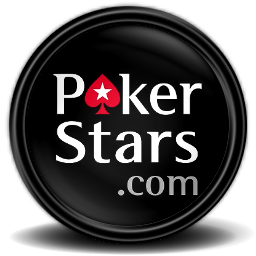Is it Time to Sell PokerStars?
The hottest film of 1993 was “Indecent Proposal”. In a morality tale, Demi Moore’s happily married character was offered $1m for one night of passion with Robert Redford. Spoilt only by the fact that at the time most women would have paid to sleep with Robert Redford, the film explored the idea that everything has its price.
Now that PokerStars has resolved its legal situation in the USA, nothing stands in the way of a private equity company making an “indecent proposal” of their own. Whether PokerStars wants it or not, in the jargon of investment bankers everywhere, the company is “in play.” If offered the right price, how could they possibly refuse?
In 2006, shortly before the catastrophic UIGEA was crowbarred into the Port Security bill, the market abounded with rumors that PokerStars would go public with an Initial Public Offering (IPO) valuing the company at c$2bn. This option would have been impossible in the environment of legal uncertainty following the UIGEA, and was given the kiss of death following Black Friday when Isai Scheinberg was indicted along with Full Tilt’s owners.
Last year’s $731m settlement with the US DoJ which included the purchase of Full Tilt settled all key outstanding legal issues which stood in the way of a sale: the settlement stated:
“… subject to the terms of Paragraph 7, the in rem forfeiture action against the PokerStars Defendant Property and the civil money-laundering claims against the PokerStars Companies shall be dismissed with prejudice. Accordingly, this Stipulation and Order of Settlement fully and finally resolves this action as to the PokerStars companies and the PokerStars Defendant Property.”
PokerStars followed up with their own statement:
“PokerStars does not admit to any wrongdoing and is explicitly permitted to apply to relevant U.S. gaming authorities to offer real money online poker when state or federal governments introduce regulation.”
Even though the company has bought a casino in Atlantic City, it still does not officially have a gaming license in the USA. The American Gaming Association, which represents US bricks and mortar casinos is opposing PokerStars’ application. As PartyPoker CEO Norbert Teufelberger put it;
“It is obviously clear that if PokerStars is in the market, the opportunity will be smaller. If PokerStars is out, then it’s going to be, I would assume, very much between us and Caesars.”
Courtesy of PokerScout, we know that PokerStars currently averages 23,400 cash game players online every hour of every day on the .com site alone. Add in another 5,000 from the restricted .fr, .it and .es sites plus Full Tilt’s, 3,000, and we get a total of over 33,000 for the whole Rational Enterprises Group.
Edging out a closely chasing pack in number two spot is PartyPoker with an average of 3,300 cash game players. In other words, PokerStars is ten times bigger than its closest competitor and it is in the running to take a dominant position in a re-opened US market. That is a market position that will send private equity firms slavering.
The developed world’s financial crisis has massively reduced interest rates and the returns available for invested capital. What this means in practice is that at the moment, every $ that PokerStars makes in profit has a higher value to investors. There is an ocean of money looking for a return on investment and PokerStars is exactly the type of company that can get a premium price in this environment.
US Treasuries are the market’s mathematical investment for “risk free return”, but with Bernanke’s relentless trillion dollar a year printing press in operation, they have been transformed into “return free risk.” PokerStars without legal problems is a cash cow with low risk and high returns, and it’s big enough to interest every major investor in the world.
One of the most significant conditions of the DoJ settlement was the demand that PokerStars’ founder Isai Scheinberg step down and remove himself from any executive control over the company.
“Within 45 days of the acquisition of the Forfeited Full Tilt Assets, Isai Scheinberg,who is presently under indictment in a related criminal case, shall not serve in any management or director role at PokerStars. This provision is subject to re-evaluation by the parties upon the resolution of the criminal case.”
These charges have still not been settled, so Isai, who reputedly owns 75% of PokerStars has no longer got control over what must be the majority of his wealth. As a Moscow University maths graduate, he will be fully aware of the portfolio risk of concentrating what are now his investments, so heavily in one company.
Canadian citizen, Isai Scheinberg, is now over 65 and PokerStars is still his baby. His commitment to the company and to online poker is strong enough to make him rebuff all suitors, but will it remain so now he has lost day to day control? What if someone makes a truly indecent proposal?
What you won’t find on PokerStars are any casino games; No BlackJack, Roulette, Slots or even Bingo. Bwin.Party’s latest results show that poker generated less than 23% of its revenues, the rest came from Sports Betting, Casino Games and Bingo. If PokerStars launched these games it could potentially quadruple its revenues.
Isai and his son Mark, who is now the CEO, have focused on poker, and created a superbly profitable company by maintaining their commitment to the game and to delivering an excellent product worldwide. They have created a trusted brand, and in the gambling world, where mistrust is endemic, this is a priceless asset.
A buyer who had the ability to expand Stars into these games would value the company at a much higher price than its poker operations alone could justify.
The rationale for sticking to poker alone has been diminished by the growth of nationally regulated markets. Poker could always be justified as a skill game, so the company could justify its operations as not being covered by anti-gambling laws.
PokerStars always maintained that the Wire Act in the USA did not apply to online poker. Finally, the DoJ, which had always maintained the opposite, relinquished its position and accepted the legal arguments which PokerStars had used to justify why it wasn’t breaking Federal laws.
Now that it has licenses in many of its markets, it has no need to avoid gambling games in order to stay in a legal grey area. It can offer them and be completely compliant with the law.
If the company does seek a stock market listing, which would give the Scheinberg family a chance to monetize their investment, the company would come under tremendous pressure to launch casino games. It could be argued that not to do so would be breaching their duty to their shareholders.
It is not clear that Scheinberg father and son would want to comply with this pressure. The prospect alone could make a private equity company’s indecent proposal shift into the decent column.
They have choices to make. To carry on, and risk their wealth on the continued success of PokerStars; to go public and put themselves at the mercy of activist shareholders clamoring for casino game profits, or to sell out completely in a private equity deal that could value their company at a massive premium to its current price.
Life’s tough for billionaires ….




















COMMENTS